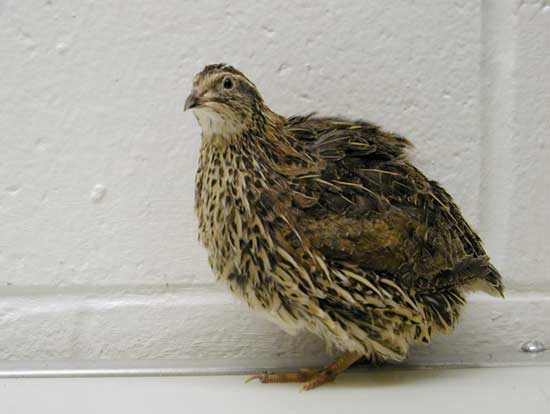Anticipation Improves Avian Copulation

When male birds know they're about to get it on, that action is more likely to spawn a bigger brood of eggs compared to spontaneous copulation, a new study finds.
Previous studies have shown that when two male birds mate with a female in a competition to pass on their genetic material, they end in a draw and both become fathers to an equal number of eggs.
But researchers wondered whether Pavlovian conditioning (the process that set Ivan Pavlov's dogs drooling for meat whenever they heard a ringing bell) could give one male an advantage over the other.
Using male quails, Nicolle Matthews of the University of Texas and her colleagues placed each of two birds into two differently designed chambers for 30 minutes over a period of five days.
Whenever the males were in one of the two chambers, they were then allowed access to a female, and so learned to anticipate having the chance to mate when placed in that chamber (so it functioned sort of like the avian equivalent of a Barry White album).
On test day, each male was placed in one of the two chambers and then allowed to copulate with the female. Researchers then tested the paternity of the female's eggs.
The results, detailed in the September issue of the journal Psychological Science: the quail in the "Barry White chamber" fathered more of the eggs.
Get the world’s most fascinating discoveries delivered straight to your inbox.
- The Sex Quiz: Myths, Taboos and Bizarre Facts
- Mating Game: The Really Wild Kingdom
- Vote: Top 10 Monogamous Animals

Andrea Thompson is an associate editor at Scientific American, where she covers sustainability, energy and the environment. Prior to that, she was a senior writer covering climate science at Climate Central and a reporter and editor at Live Science, where she primarily covered Earth science and the environment. She holds a graduate degree in science health and environmental reporting from New York University, as well as a bachelor of science and and masters of science in atmospheric chemistry from the Georgia Institute of Technology.


